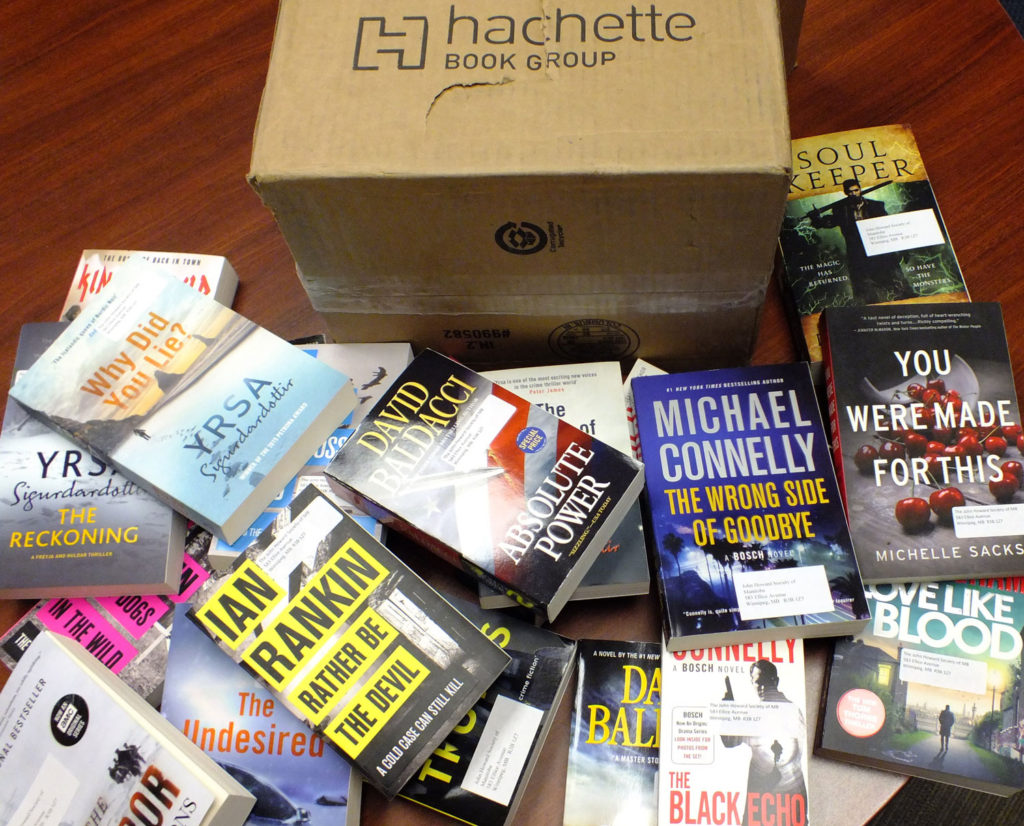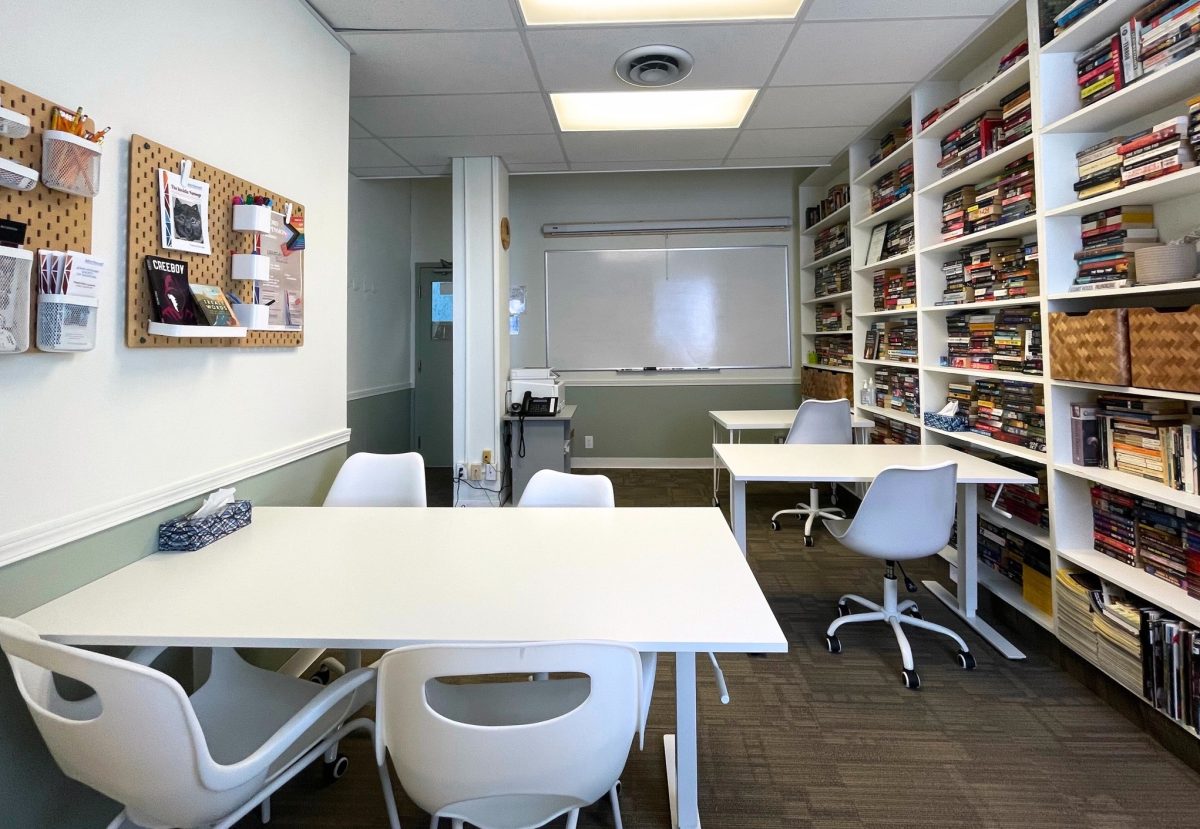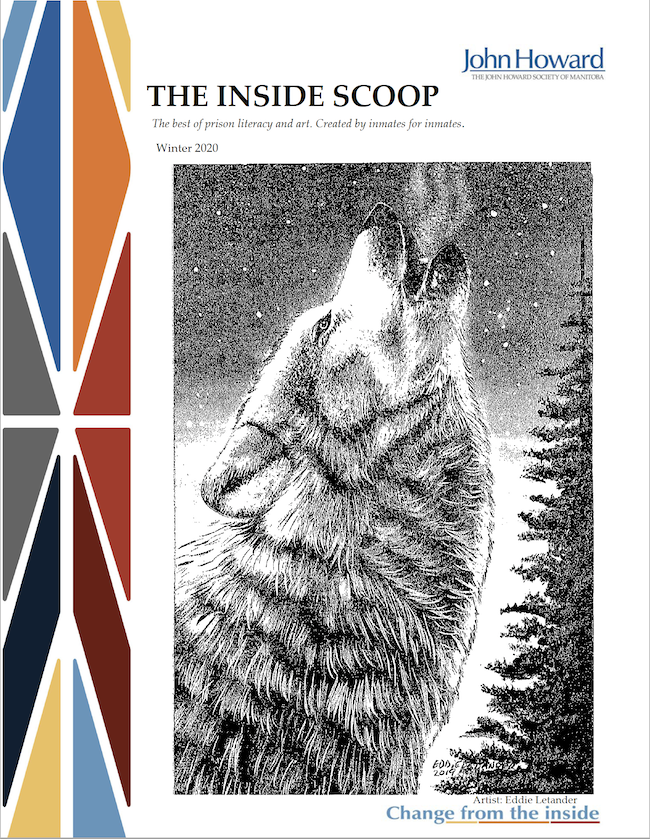What we do
The John Howard Society of Manitoba literacy program works with clients who are interested in improving the basic literacy skills they need for school, work, parenting, and community participation.
Literacy skills are crucial to day-to-day functioning in our increasingly information-based world, and we know that many men who are in jail or coming out of jail cannot read or write as well as they would like.
In addition to improving work and education prospects, we have seen that building literacy skills can be very empowering for people who have had negative experiences with school or who have never had the opportunity to develop a love of learning.
Improved reading and writing also opens up many avenues for creative self-expression – everything from writing poetry to penning an editorial to telling your life story. Through our work we hope not only to give our clients the tools to improve their lives, but also to raise their voices and share their experiences.
What is literacy?
While many people think of literacy as just reading and writing, in our program “literacy” means a wide range of skills, including:
– reading
– writing
– math
– computer use
– oral communication
– problem-solving
– critical thinking
– understanding documents like forms, graphs and charts
– working with others as part of a team
We work with people who are struggling with reading, writing and other basic skills. We also work with those who feel they have a pretty solid base but who still want to improve. Our program is learner-centred, which means students set their own goals and each person in the program is usually working on something different.
Things we offer

The John Howard Society literacy program offers:
– a personal development workbook series, which helps clients improve their literacy skills while at the same time learning about topics of interest, such as parenting, victim awareness, and substance use
– opportunities to improve basic literacy and numeracy skills through one-to-one tutoring sessions with volunteers, inmate peer tutors, and JHS staff
– opportunities to study for the GED or brush up on math, English, sciences and social studies in preparation for a return to school
– referrals to adult literacy programs in the community
– peer tutor training for inmates or bail program residents who are interested in working with and mentoring their lower-literacy peers
– a lending library of fiction, non-fiction and magazines
– a storybooks-on-tape program where incarcerated parents can record themselves reading a story and have the recording and storybook sent to their child
– a newsletter published twice a year showcasing artwork, poetry, stories and letters from contributors in jails and prisons across Canada
Where we have worked
Winnipeg Remand Centre
When there are no pandemic restrictions, we offer one-to-one tutoring in the Remand Centre, providing inmates with the opportunity to upgrade their literacy skills. Our session normally runs on Wednesday evenings, and community tutors work with the students during sessions.
Headingley Correctional Centre and Milner Ridge Correctional Centre
In previous years, we have offered a Peer Tutor Program at the Headingley and Milner Ridge Correctional facilities. The Peer Tutor Program is a course for inmates interested in working with and mentoring their lower-literacy peers. Tutors learn valuable skills that can be used with friends, family, or children.
John Howard Society Office
We offer group literacy sessions and one-to-one tutoring to clients and others in the community. We can arrange these appointments during a time that is convenient to both staff and student.
Program limitations
We often get requests from inmates or ex-inmates who are interested in completing credits toward a Mature Grade 12 Diploma. However, our program is only a basic literacy program. We cannot give out diplomas or degrees, or offer high school level courses.
However, we can help learners to practice up on the basic skills they will need to be successful in school, so some people may find it helpful to participate in our program prior to enrolling in a Mature Grade 12 program. We can also help community clients find an adult learning centre in their neighbourhood where they can take the courses they need.
Inmates currently unable to participate in our programming or from other correctional centres may still be able to get access to our personal development workbook series.
Many correctional centres in the province have copies of these books and provide them to inmates who cannot otherwise access literacy programming. We do not, however, mark or provide certificates for these workbooks. Individuals complete the books for their own interest only.
Inside Scoop
We publish a newsletter twice a year called the Inside Scoop, which showcases the writing and artwork of students in our literacy program as well as criminalized people across Canada.
We invite you to enjoy back issues of the Inside Scoop here.
Anyone who is in jail or who has ever been in jail is welcome to contribute to the Inside Scoop! We take poems, stories, articles, editorials, jokes, letters, recipes, artwork, riddles and more!
We reserve the right to edit for length, and we won’t print anything that’s racist, sexist, homophobic or promotes violence or gang involvement.
Send entries to:
The Inside Scoop
The John Howard Society of Manitoba
583 Ellice Avenue
Winnipeg, MB R3B 1Z7
Get the Story Out
In this program, people incarcerated at the Winnipeg Remand Centre, Headingley Correctional Centre, Milner Ridge Correctional Centre, and Stony Mountain Institution can stay in touch with their children (or grandchildren, nieces or nephews) through the power of storytelling. We provide children’s storybooks, which the inmate reads while a volunteer records them. We then transfer the recording to CD and MP3. The CD and the storybook are gift-wrapped and sent to the child by mail, and the MP3 is emailed to the child’s caregiver.
Please note: Books and recordings can only be sent if the child or child’s caregiver does not have a no-contact order against the program participant, and as long as the caregiver agrees to accept the gift.

